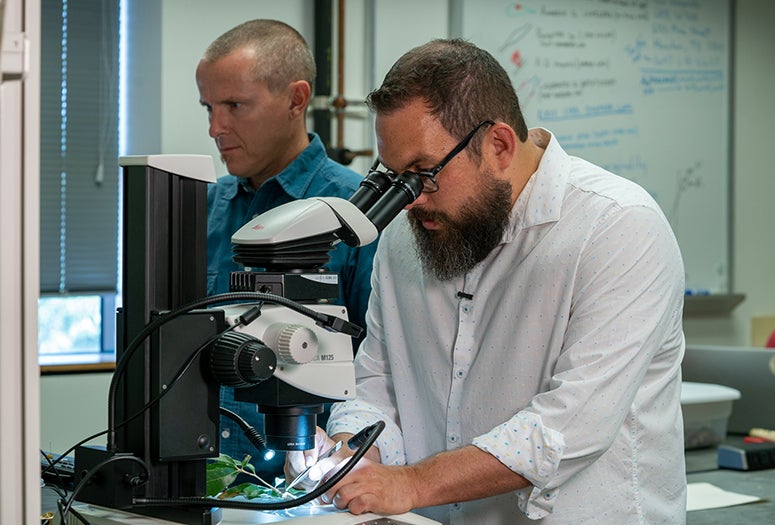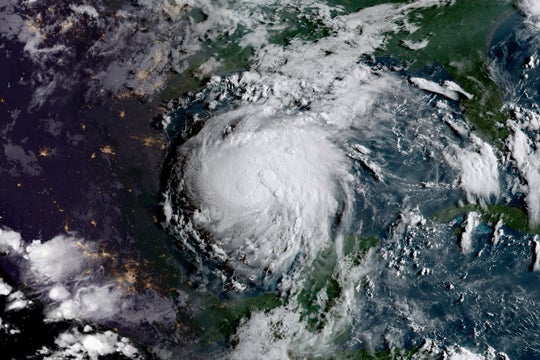
With species the world over on the move due to climate change, a unique experiment in the wake of 2017’s Hurricane Harvey has revealed a way that species can instantly evolve when they move in response to a climate catastrophe.
“With the profound and rapid changes we’re seeing with the environment, movement is becoming critical for species’ survival,” said Rice University evolutionary biologist Scott Egan, senior author of a study published this week in Nature Ecology and Evolution. “The takeaway from this study is that while natural selection is still incredibly important, there’s another form of evolutionary change that’s directly related to movement, and it could make a huge difference in the evolution of organisms.”
Harvey, the most intense rainfall event in U.S. history, stalled over southeast Texas and dropped more than three feet of rain over thousands of square miles in a matter of days. Record flooding in and around Houston produced “mini extinctions” of insects and other species in areas that remained inundated for 10 or more days.
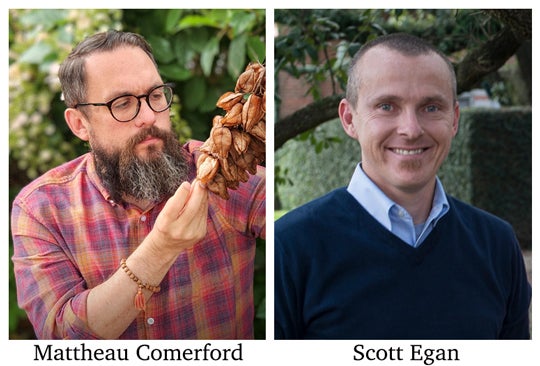
Study lead author Mattheau Comerford, Egan and co-authors Scott Carroll and Tatum La discovered evolution played out across space rather than time when the insect species Jadera haematoloma recolonized flooded areas.
Comerford, a former graduate student in Egan’s lab, is now a National Science Foundation Postdoctoral Research Fellow at the University of Massachusetts Boston. Carroll is a biologist at the University of California, Davis, and La is a Stanford University undergraduate and former high school intern in Egan’s research group.
The researchers showed that in the wake of the storm, a form of evolution called spatial sorting exerted a greater influence on the evolution of J. haematoloma, commonly known as the red-shouldered soapberry bug, than did natural selection.
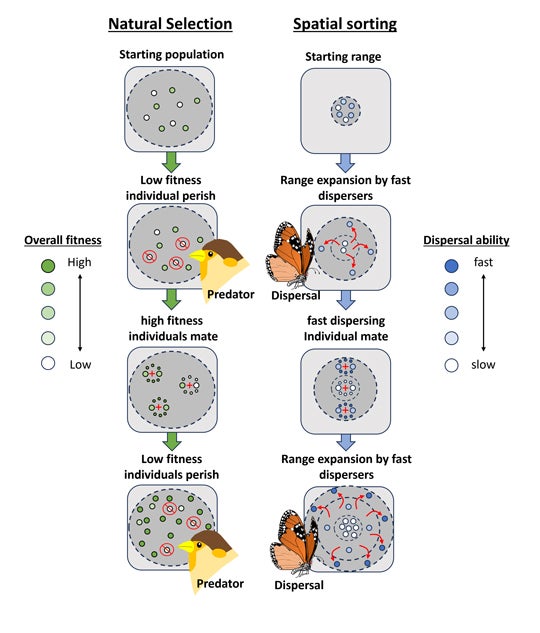
“This is an understudied and underappreciated form of evolutionary change that has emerged from the invasive species literature,” Egan said of spatial sorting. “For example, cane toads in Australia have exhibited these patterns. And up until the last decade or two, spatial sorting has not really been considered a significant form of evolutionary change.”
Natural selection and spatial sorting each change the likelihood that specific traits will be passed to future generations. With natural selection, change plays out over decades or even millennia as traits become more common or less common depending on which individuals survive and reproduce. With spatial sorting, change occurs when species move into new territory, and traits become more common or less common depending on which individuals are at the leading edge of range expansion.
“If everybody is moving at different rates, the ones that move the fastest will always tend to end up at a higher density at the range edge,” Egan said. “So right at that range edge, you have just a subpopulation of the fastest dispersers. And when they mate, there’s a tendency for them to have even faster dispersing offspring. So there’s this kind of accumulative, increasing rate of dispersal as the range front moves outward.”
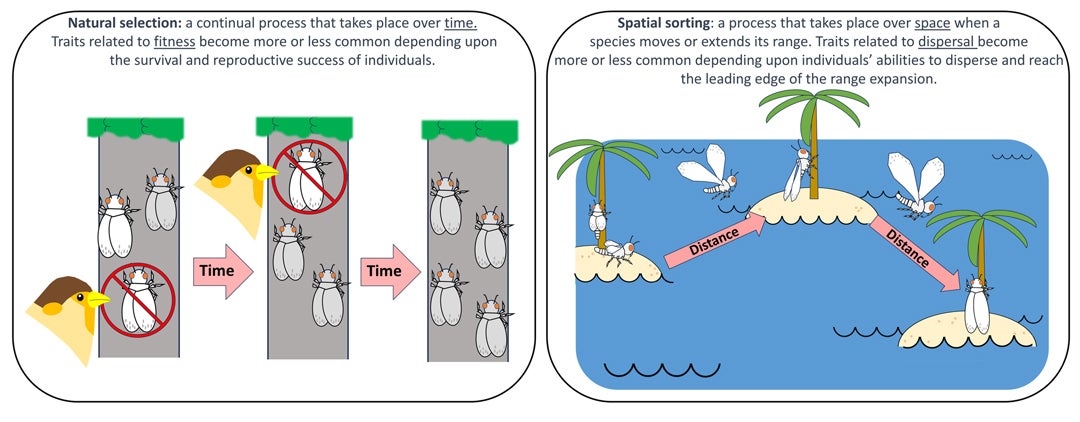
Prior to Harvey, Comerford spent about 10 months gathering field data about soapberry bugs at 15 sites around the Houston metropolitan area. Native to Texas and the southwestern United States, the bugs are a textbook example of rapid evolution. They feed on seeds by plunging needle-like beaks deep into the fruit of their host plants.
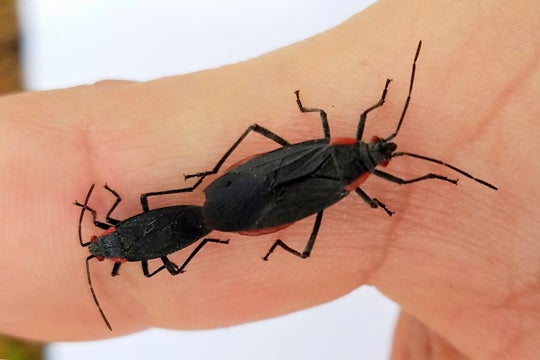
When the goldenrain tree was widely introduced in the United States as an ornamental plant after World War II, it proved an opportune host for soapberry bugs. The trees’ seeds are not as deep as those of the soapberry’s native host plants, and the bugs rapidly evolved shorter beaks to access them. Through decades of study, Carroll and others have shown this is one of the fastest recorded examples of ecological adaptation.
Southeast Texas is one of the few places in the United States where short-beaked soapberry bugs coexist alongside two native varieties with longer beaks that are adapted to the seed depths of their host plants.
At field sites, Comerford sampled soapberry bugs from the three host plants every two weeks. Prior to the storm, the bugs found on each host were the varieties whose beaks were adapted to match the host’s seeds. This was expected, given the “extremely strong selective pressure to rapidly adapt beak length to suit the seed pods of whatever host plant they are living on,” he said.
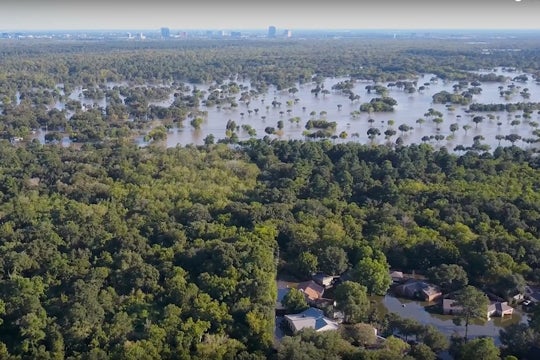
Harvey flooded 11 of the research team’s 15 sites. At nonflooded sites, the three varieties of soapberry bugs continued to thrive. At flooded sites, Comerford found soapberry bugs began returning within three months, but only bugs with longer wings reached these sites. It took more than two years for all the sites to be recolonized by the long-winged bugs.
“Looking at our data and past publications, we saw that beak length and wing length were genetically linked, meaning insects with longer wings also had longer beaks,” Comerford said. “So now that we had better dispersers driving spatial sorting, they were dragging along these other traits, the longer beaks, that had nothing to do with dispersal.”
The persistence of long-winged, long-beaked individuals on all of the host plants at the recolonized sites showed “spatial sorting was having an effect that was much stronger than the effect of natural selection in that moment,” Comerford said. “That is completely novel in this experiment.”
Egan said the study demonstrates the significance of spatial sorting, because similar scenarios could play out after many types of climate catastrophes, including wildfires, droughts, heat waves and winter storms.
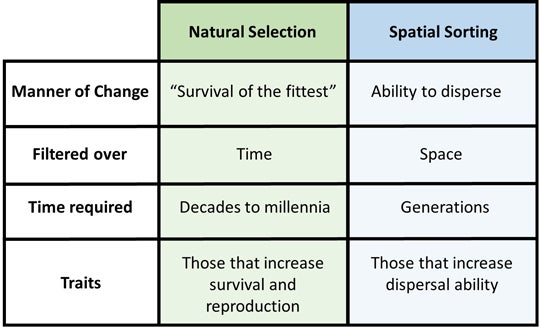
“All these episodic types of events are predicted to increase in frequency and magnitude in the coming years,” Egan said. “As populations move in response to these events, and as they are moving poleward to get into the envelope to which they are adapted, they’re going to be subject to spatial sorting.”
Comerford said, “The hallmark of the Anthropocene, and all of the changes that we’re seeing with the environment, is that the ability to move and migrate to new locations that are more hospitable is critical for the survival of organisms. This study shows there is a force out there that we haven’t been accounting for that could make a huge difference in the survival and evolutionary change of organisms on the move. We need to be cognizant of its potential, because this is a phenomenon that is probably going to come into play more as events unfold.”
The research was supported by grants from the National Science Foundation (1802715), the American Museum of Natural History’s Theodore Roosevelt Memorial Fund, the American Philosophical Society’s Lewis and Clark Fund and the Society for the Study of Evolution’s Small Grants for Local and Regional Outreach program.
- Peer-reviewed paper
-
“Spatial sorting promotes rapid (mal)adaptation in the red-shouldered soapberry bug after hurricane-driven local extinctions” | Nature Ecology and Evolution | DOI: 10.1038/s41559-023-02205-7
Authors: Mattheau S. Comerford, Tatum M. La, Scott Carroll and Scott P. Egan
- Image downloads
-
https://news-network.rice.edu/news/files/2023/10/1009_SORTING-fig1-lg.jpg
DESCRIPTION: Graphical illustration of the processes of natural selection and spatial sorting. (Illustration by Mattheau Comerford)https://news-network.rice.edu/news/files/2023/10/1009_SORTING_table-lg.jpg
DESCRIPTION: Table comparing natural selection and spatial sorting. (Illustration by Mattheau Comerford)https://news-network.rice.edu/news/files/2023/10/1009_SORTING_NvS-illustration-lg.jpg
DESCRIPTION: Illustrations describing natural selection and spatial sorting. (Illustration by Mattheau Comerford)https://news-network.rice.edu/news/files/2023/10/1009_SORTING-flood-lg.jpg
CAPTION: Hurricane Harvey produced record flooding in Houston with some areas remaining inundated for 10 days or more. (Photo by Brandon Martin/Rice University)https://news-network.rice.edu/news/files/2023/10/1009_SORTING-Comerford-lg.jpg
CAPTION: Mattheau Comerford inspecting goldenrain tree pods for soapberry bugs (Photo by Jessica Pawell)https://news-network.rice.edu/news/files/2023/10/1009_SORTING-Egan1-lg.jpg
CAPTION: Scott Egan (Photo by Jeff Fitlow/Rice University)https://news-network.rice.edu/news/files/2023/10/1009_SORTING_Jadera-lg.jpg
CAPTION: Red-shouldered soapberry bugs (Photo by Mattheau Comerford)https://news-network.rice.edu/news/files/2023/10/1009_SORTING-sEmC-lg.jpg
CAPTION: Mattheau Comerford (right) and Scott Egan at work in Egan’s Rice University laboratory in August 2019. (Photo by Jeff Fitlow/Rice University)https://www.flickr.com/photos/gsfc/35973025253/
A geocolor enhanced image captured by weather satellite GOES-16 shows Hurricane Harvey in the Gulf of Mexico as daylight approached Aug. 24, 2017, with nighttime features to the storm’s left and daytime features to its right. (Photo courtesy of NOAA/NASA GOES Project) - Related stories
-
Beetles born on the edge make invasion faster – Jan. 27, 2017
http://news2.rice.edu/2017/01/27/beetles-born-on-the-edge-make-invasion-faster/Climate change made Harvey rainfall 15 percent more intense – Dec. 13, 2017
https://news2.rice.edu/2017/12/13/climate-change-made-harvey-rainfall-15-percent-more-intense/Biologists discover new insect species at Rice University – Jan. 24, 2022
https://news.rice.edu/news/2022/biologists-discover-new-insect-species-rice-universityCaught in the act: Study probes evolution of California insect – May 15, 2024
https://news2.rice.edu/2014/05/15/caught-in-the-act-study-probes-evolution-of-california-insect/Discovery adds new species to Rice lab’s ghoulish insect menagerie – Oct. 26, 2020
https://news.rice.edu/news/2020/discovery-adds-new-species-rice-labs-ghoulish-insect-menagerie - About Rice
-
Located on a 300-acre forested campus in Houston, Rice University is consistently ranked among the nation’s top 20 universities by U.S. News & World Report. Rice has highly respected schools of Architecture, Business, Continuing Studies, Engineering, Humanities, Music, Natural Sciences and Social Sciences and is home to the Baker Institute for Public Policy. With 4,552 undergraduates and 3,998 graduate students, Rice’s undergraduate student-to-faculty ratio is just under 6-to-1. Its residential college system builds close-knit communities and lifelong friendships, just one reason why Rice is ranked No. 1 for lots of race/class interaction and No. 4 for quality of life by the Princeton Review. Rice is also rated as a best value among private universities by Kiplinger’s Personal Finance.

